People
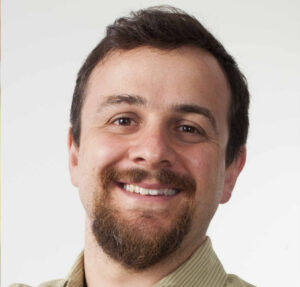
Justin Reich
Justin is an associate professor of digital media in the Comparative Media Studies/Writing department at MIT and the director of the Teaching Systems Lab. He is the author of Failure to Disrupt: Why Technology Alone Can’t Transform Education, and the host of the TeachLab Podcast. He earned his doctorate from the Harvard Graduate School of Education and was the Richard L. Menschel HarvardX Research Fellow. He is a past Fellow at the Berkman-Klein Center for Internet and Society. His writings have been published in Science, Proceedings of the National Academy of Sciences, Washington Post, The Atlantic, and other scholarly journals and public venues. He started his career as a high school history teacher, and coach of wrestling and outdoor adventure activities. Follow Justin on Twitter or Google Scholar. (Contact: jreich@mit.edu)
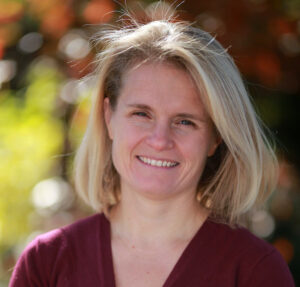 Meredith Thompson
Meredith Thompson
Thompson draws upon her background in science education and outreach as a research scientist and lecturer for the Teaching Systems Lab at MIT. Her research interests are in teacher preparation using simulations, STEM educational games, and using virtual and simulated environments for learning STEM topics. She has a bachelor’s degree in chemistry from Cornell, a masters in science and engineering education from Tufts, and a doctorate in science education from Boston University. She is an instructor in the Scheller Teacher Education Program (STEP). Her research interest is in using technology to help expand how and what we learn. She works in creating and implementing simulations to help preservice and inservice teachers learn key skills in teaching. Thompson uses those games and simulations when she teaches the STEP course: “Understanding and Evaluating Education.” She has also done work collaborative learning environments in Virtual Reality, using multi-user virtual environments (MUVEs) in learning ecology, and in how AI powered apps that can enrich parent and child learning strategies. She is the coauthor of Envisioning Virtual Reality: A toolkit for implementing VR in Education. (Contact: meredith@mit.edu)
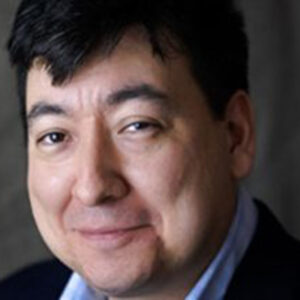 Garron Hillaire
Garron Hillaire
Garron Hillaire completed his B.A in Mathematics (philosophy option) from the University of Washington and an Ed. M. in Technology Innovation and Education at the Harvard Graduate School of Education. After contributing to Universal Design for Learning (UDL) research at CAST.org, he enrolled at the Open University in the UK as a Ph.D. candidate in Educational Technology. His thesis focuses on emotional design and measurement and he is exploring how that work can help teachers to reflect on their practice. Garron’s chief role in OPS support is in programming the Teacher Moments website.
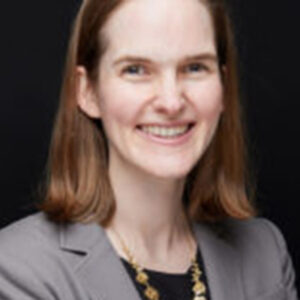 Sara O’Brien
Sara O’Brien
Sara works as an Instructional Designer on a variety of projects at the Teaching Systems Lab. She works on several MOOCs and supports teacher educators using the Lab’s online practice space Teacher Moments. Sara also works as an Instructional Designer at the Harvard Graduate School of Education, developing and facilitating professional development for educators. She holds a B.A. in English from Harvard College, an M.A. in Education from Stanford University, and an Ed.M. in Instructional Leadership from the Harvard Graduate School of Education.
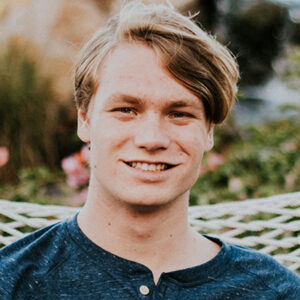 Griffin Leonard
Griffin Leonard
Griffin Leonard is a MIT undergraduate studying Computer Science and Brain and Cognitive Science (Course 6-9). His research with TSL is focused on argumentation teaching strategies in Eliciting Learner Knowledge (ELK) scenarios. Outside of school, Griffin loves to ski, discover new music, and read about philosophy and religion. He is a brother of Phi Delta Theta fraternity.
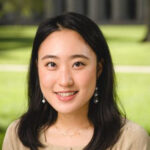 Camila Lee
Camila Lee
Camila is an Instructional Designer and Research Associate at the MIT Teaching Systems Lab. Her past research experiences with the Wellesley College Human-Computer Interaction Lab and the Massachusetts Institute of Technology Scheller Teacher Education Program have led her to design studies that seek to understand how to optimize learning with different model mediums such as immersive virtual reality. At MIT, Camila works on projects that support teacher education through online learning experiences. She is also a member of the Misinformation Working Group at the Berkman Klein Center for Internet & Society.
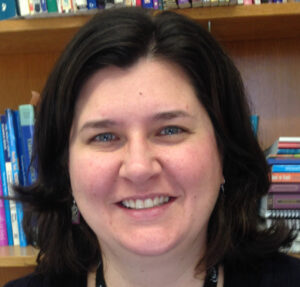 Jamie N. Mikeska
Jamie N. Mikeska
Jamie Mikeska is a Senior Research Scientist in the K-12 Teaching, Learning, and Assessment Center at ETS. She earned a Ph.D. in curriculum, teaching, and educational policy (emphasis in science education) from Michigan State University in 2010. Her current research focuses on conducting validation studies on assessments of science teachers’ instructional quality and content knowledge for teaching science. This research targets the use of these science teaching quality measures as summative assessments for licensure purposes and as formative assessment tools integrated within teacher education. She has served as principal investigator on multiple National Science Foundation (NSF) research projects (grant award #1445641, #1621344, #1813254, #1813476, #2037983, and #2032179). She has served on the editorial review board of the American Educational Research Journal, where she received the “Outstanding Reviewer” award in 2018, and for the Innovations in Science Teacher Education journal. In 2019, she facilitated a working conference on the role of simulations in K-12 science and mathematics teacher education. More recently, she served on the planning committee for the 2021 NSF DRK-12 principal investigator conference. Prior to graduate school, she taught elementary school for five years in Montgomery County, MD and earned her National Board certification during her tenure as a public-school teacher. (Contact: jmikeska@ets.org)
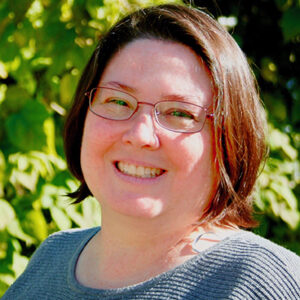 Heather Howell
Heather Howell
Heather Howell (hhowell@ets.org) is a Research Scientist in the K-12 Teaching, Learning, and Assessment Center at ETS. Her research focus includes the study of teacher content knowledge for teaching, with a focus in secondary mathematics teaching, and the study of teacher learning of educational practices such as discussion and argumentation. She has been a principal investigator of a series of grants funded by the National Science Foundation (Grant No. 1621344, 2032179, and 2037983) exploring the use of simulated teaching in methods classes using the MursionTM environment. Heather holds a MS in Mathematics, a MA in Mathematics Education and a PhD in Teaching and Learning with specialization in Mathematics Education from New York University. Previously, she taught mathematics in grades 9-12 and at the undergraduate level, mathematics teaching methods, and mentored mathematics teachers in grades 6-12 in New York City. (Contact: hhowell@ets.org)
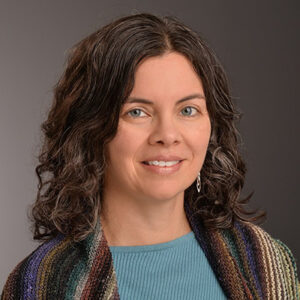 Pamela S. Lottero-Perdue
Pamela S. Lottero-Perdue
Pamela S. Lottero-Perdue, Ph.D., is Professor of Science and Engineering Education in the Department of Physics, Astronomy & Geosciences at Towson University. She teaches science and engineering content and methods. Her research includes investigating how K-8 students engaged in science-integrated engineering design plan, fail, reason, and productively persist, and how simulated classroom environments can be used to help pre-service and in-service teachers practice facilitating argumentation discussions in science and engineering. (Contact: plottero@towson.edu)
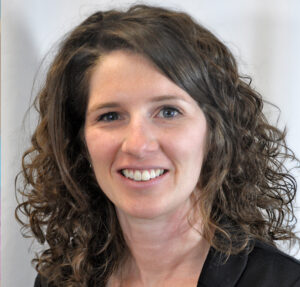 Calli Shekell
Calli Shekell
Calli Shekell is a post doctoral fellow at ETS in the K-12 Teaching, Learning, and Assessment Center and was selected for the 2021 CADRE post doc professional growth opportunity. Her research focuses on the work teachers do to support student sense making in classroom discussions, as well as teacher learning in this area. Prior to this role, she received her PhD in Curriculum and Instruction from the University of Pittsburgh, taught secondary and undergraduate students mathematics and taught and supervised preservice teachers. Motivated by the belief that all students have the ability to be successful in mathematics and science with the right learning opportunities, Calli hopes that her work will lead to more students feeling successful in those fields. (Contact: cshekell@ets.org)
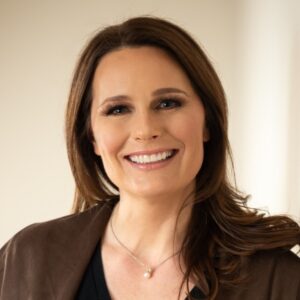 Denise Bressler
Denise Bressler
Denise Bressler is a Post Doctoral Fellow at ETS in the in the K-12 Teaching, Learning, and Assessment Center. For over twenty years, she has been developing and researching ways to make learning engaging for all students. She is driven by a passion to make learning exciting and equitable for everyone. She studies immersive innovations designed to enhance formal and informal STEM learning. She holds an AB in Sociology from Princeton University, and MA in Instructional Design and Technology from Teachers College, Columbia University, and a PhD in Learning Sciences and Technology from Lehigh University. Previously, she was an Exhibit Developer at Liberty Science Center in New Jersey. She is also the author of “Unlearning the Ropes: The Benefits of Rethinking What School Teaches You.” (Contact: dbressler@ets.org)
 Ben Baehr
Ben Baehr
Benjamin Baehr is an Assessment Specialist in the Assessment & Learning Technology Research & Development division at ETS. He was a middle school mathematics teacher for seven years before coming to ETS. Ben primarily works on projects involving teacher licensure, content knowledge for teaching, and simulations for pre-service teachers. Ben contributes to the development of the OPS ABS mathematics tasks.
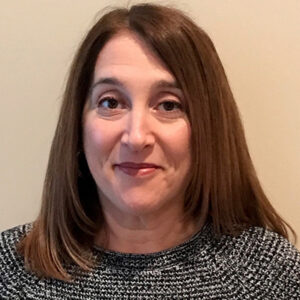 Deanna Scarcella
Deanna Scarcella
Deanna Scarcella is an Administrative Professional in the Psychometric Analysis and Research (PAR) department at Educational Testing Service (ETS). Deanna received a Bachelor of Arts degree in Elementary Education from The College of Staten Island. She currently provides administrative assistance to the Associate Vice President and staff in PAR. Deanna continues to assist the Principal Investigators with administrative and project tasks for a series of National Science Foundation (NSF) grants, including the OPS project.
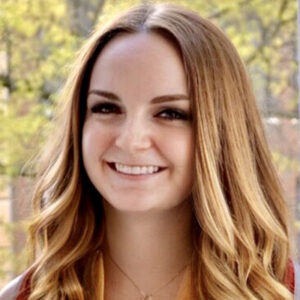 Devon Kinsey
Devon Kinsey
Devon Kinsey in a Senior Research Assistant in the K-12 Teaching, Learning, and Assessment Research Center at ETS. She primarily works on projects involving teacher preparation and licensure and has contributed to numerous projects involving the use of simulated discussions with pre-service teachers. Devon obtained a bachelor’s degree in Psychology and is currently pursuing a master’s degree in Industrial/Organizational Psychology.
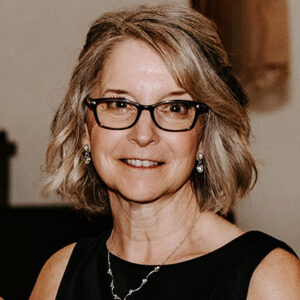 Liz Orlandi
Liz Orlandi
Elizabeth Orlandi is a Science Education Consultant. After several years as a Research Plant Pathologist for the University of Maryland and the U. S. Department of Agriculture, she left the bench to share her love of science and learning with K-8 children. She became a Professional Development Instructor for K-8 science teachers and began working with ETS Principal Investigators on projects related to science teacher preparation and assessment. She is currently continuing this work with the OPS ABS project while serving her community as a Maryland Master Naturalist.
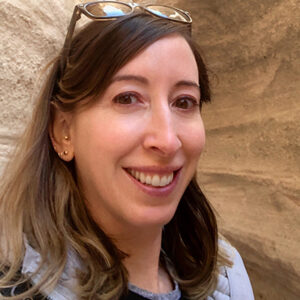 Jen Lentini
Jen Lentini
Jennifer Lentini is a Senior Research Project Manager in the ETS AI Labs. Jennifer has over 20 years of professional research experience, working on a number of large-scale research projects in the areas of adult literacy, work readiness, English language acquisition, and teacher preparation, and has contributed to several studies using simulated classroom technology.
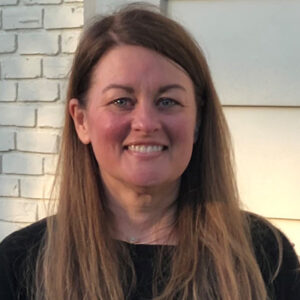 Jess Tierney
Jess Tierney
Jessica Tierney is an Assessment Specialist in the Assessment Innovation division at ETS. Jessica spent nine years as an elementary classroom teacher and the lead teacher for improving instruction. She received her Master of Education degree in Curriculum and Instruction with an emphasis in Mathematics Education. Jessica works on innovative teacher licensure projects, simulations for preservice teachers, and formative assessments for students. Jessica contributes to the development of the mathematics tasks and leads the scoring work for the OPS ABS project.
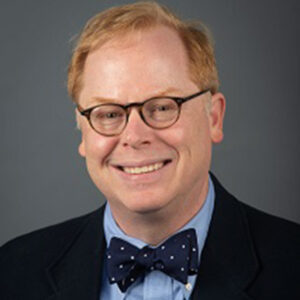 Kenneth P. King
Kenneth P. King
Kenneth P. King, EdD is a professor and chair of the elementary education program at Aurora University in Aurora, Illinois, where he teaches coursework in education, specializing in science education. His research interests are in the history of science education and in developing inquiry-rich teaching science curriculum. He is the author of two books on science teaching, numerous book chapters on science content and learning theory, and multiple publications for both scholarly and practitioner journals.
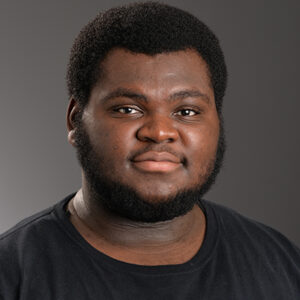 Michael Oduro
Michael Oduro
Michael Oduro is a senior Acting major in the BFA Program at Towson University. His parents are from Ghana but Michael was born in Columbia, Maryland. He enjoys playing video games, is a major comic book nerd, and loves drawing superheroes and writing short plays in my free time. He works as a Drama Counselor at a camp where he writes and directs plays for children to perform. Michael also works as a freelance voice actor and video editor in addition to working on the OPS Project Sim Specialist team where he loves to voice Ethan. Gotta love those Sausage Egg McMuffins.
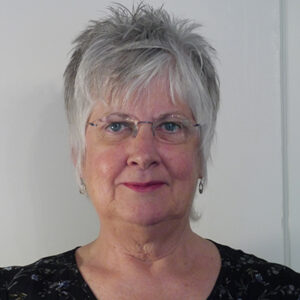 Penny Lehman
Penny Lehman
Penny Lehman, Ph.D. is a retired teacher and has been involved in a variety of research projects with Educational Testing Service over the past ten years. She spent the first twenty years of her career in higher education and found her true calling when she walked into a middle school math class where she remained for fifteen years. While involved with the OPS ABS project, Penny has served on the math task development team, the scoring team, and the training team. She currently is the lead math task trainer and is delighted to interact with students in a classroom again, even if they are avatars!
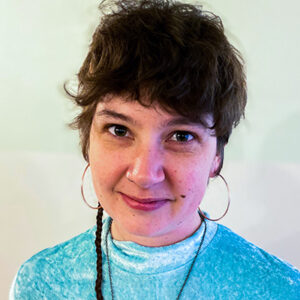 Skye Fort
Skye Fort
Skye is a director/performance artist/musician originally from New Mexico and currently living in Baltimore. She is in her final year of the Theatre Arts MFA program at Towson University where her focus is on directing and video performance. Skye has a bachelor’s degree in acting from the University of New Mexico and spent 8 years doing theatre in Chicago. Working on this project has been one of her most interesting roles to date!
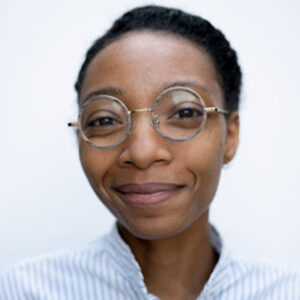 Ty Velines
Ty Velines
Tyasia Velines (they/them) is an IT Specialist, actor, and plant enthusiast from Baltimore, MD. They are passionate about how the intersection of technology and art can be used to facilitate creative thinking, create new experiences, and support learners of any age. Tyasia is an alum of Baltimore School for the Arts (Music, ’12) and the University of Maryland, College Park (Theatre, ’16). They have had the pleasure of utilizing both educational backgrounds throughout the DC, MD, and VA area. Their most recent performance was at The Kennedy Center as Progo in the world premiere of A Wind in the Door by Madeleine L’Engle, adapted by Jacqueline Goldfinger.
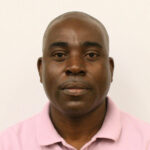
Johannes Addido
Dr. Johannes Addido, Ph.D. is a recent graduate from the University of Wyoming where he was also a graduate teaching assistant at the College of Education. Johannes has had a decade-long professional career in the fields of education and health. The greater part of his working life has been in the classroom as a High School Physics/Physical Sciences Teacher in Ghana and South Africa. He ventured into the medical field and worked as a Medical Physicist in Africa, specifically Cameroon and Cote D’Ivoire after obtaining his MSc. from Duke University. Johannes’ passion for teaching and learning is the primary motivation for pursuing a Ph.D. He enrolled in the Curriculum & Instruction doctoral program, majoring in science education, and minoring in quantitative research methods. He is a member of some educational and professional organizations such as the American Educational Research Association (AERA), Association for Science Teacher Education (ASTE), National Association for Research in Science Teaching (NARST), and Association for Institutional Research (AIR). Johannes Addido’s research explores the conceptual change approach to science teaching and learning as well as the usage of educational robots in teaching physics/physical sciences concepts in an integrated STEM environment.
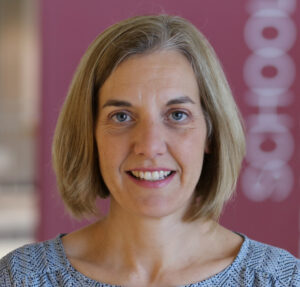 Meredith Park Rogers
Meredith Park Rogers
Meredith’s research is situated in the field of science teacher education. With respect to this project, her research on elementary teacher professional knowledge development is particularly salient. In addition to OPS, she is currently studying how to engage and support elementary in-service teachers in high-leveraged teaching practices, such as the use of representations as a means of modeling how one thinks about the mechanisms underlying science phenomenon. Also, how does a teacher’s personal orientation, and the context in which they teach, both support and constrain teachers in accomplishing their instructional objectives in providing students with ambitious science learning opportunities through the use of multimodal representations. Meredith completed her Ph.D. in Curriculum and Instruction from the University of Missouri – Columbia, my MSED in Elementary Education from D’Youville College in Buffalo, NY, and my Bachelors in Kinesiology from McMaster University in Ontario, Canada. Meredith previously taught 5th and 6th grade in Ontario, Canada. (Contact: mparkrog@indiana.edu)
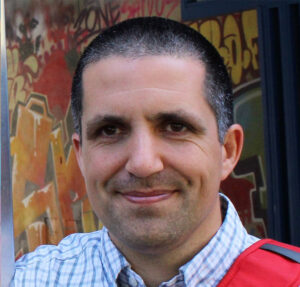 Adam Maltese
Adam Maltese
Adam Maltese is currently professor and Martha Lea and Bill Armstrong Chair in Teacher Education at Indiana University. His current research involves collection and analysis of both quantitative and qualitative data regarding student experiences, performance and engagement in STEM education from elementary school through graduate school. Adam currently teaches courses in secondary science methods and graduate seminars at the School of Education around making and the development of interest in STEM education. In addition, he leads a seminar for doctoral students in STEM fields who plan to pursue academic careers and are interested in improving their teaching practices based on research. (Contact: amaltese@indiana.edu)
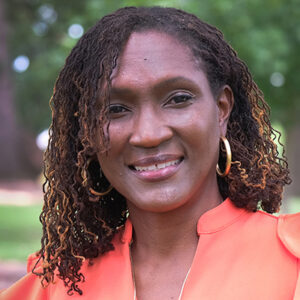 Dionne Cross Francis
Dionne Cross Francis
Dionne Cross Francis is the Joseph R. Neikirk Term Professor in the Culture, Curriculum and Teacher Education Program at the University of North Carolina at Chapel Hill. Her research focuses on understanding both the contextual, cultural and teacher-specific factors that motivate teacher actions as they plan and instruct with the goal of determining the optimal design features of professional development that allow teachers to thrive. Results of this work have informed the design and implementation of professional development initiatives in the US (Indiana, Georgia) and internationally [Ghana, Jamaica, Kosovo, South Sudan, Turkey]. She has received several awards for her research, teaching and service including University of Georgia’s Young Alumni Award, Indiana University’s Trustees Teaching Award, and K-12 Promotion of Education award for promoting STEM education from the 2014 Women of Color STEM Conference. Her work has been disseminated through two books, Research on Teacher Identity: Mapping Challenges and Innovations (2018) and Teachers’ Goals, Beliefs, Emotions, and Identity Development: Investigating Complexities in the Profession (2020) and publications in other venues such as Educational Psychologist and Journal of Mathematics Teacher Education. She holds a BA in Mathematics from the University of the West Indies, MA in Education from Wake Forest University and Ph.D. in Educational Psychology from the University of Georgia. Prior to graduate school she taught mathematics in grades 9-12 in Jamaica and Lithonia, GA. (Contact: dicross@unc.edu)
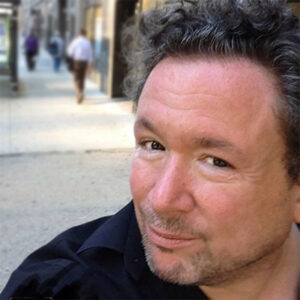 John Fillwalk
John Fillwalk
John Fillwalk is an internationally recognized artist and practitioner of virtual reality and interactive environments. He serves as the Senior Director of the Institute for Digital Intermedia Arts [IDIA Lab] at Ball State University. IDIA Lab is a virtual and augmented reality design studio exploring the intersections of art, science and technology. The lab was founded through a 40-million-dollar grant from Eli Lilly Endowment’s Digital Media Initiative. He has served as president of the Hans Breder Foundation – an international organization to promote the preservation, collection and exhibition of pioneering digital artworks. He has numerous grants, awards, fellowships, publications and presentations.His artworks have been exhibited internationally in festivals, galleries, museums, and other venues including several SIGGRAPHs, CYNETart, Synthése, 404 Festival, Dutch Design Week, Boston Cyberarts, Virtual Broad Art Museum, ISEA, ASCI, Vidéoformes, Indian Institute of Technology, History Channel, New York Hall of Science, Laval Virtual, Beecher Center for Digital Art and the Beijing Science and Technology Museum. (Contact: jfillwalk@bsu.edu)
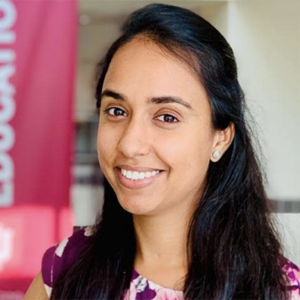 Pavneet Kaur Bharaj
Pavneet Kaur Bharaj
Pavneet Kaur Bharaj is a Ph.D. candidate in Curriculum and Instruction specialization in Mathematics Education at Indiana University Bloomington and has earned a double master’s in mathematics and education. Pavneet has nearly a decade of teaching experience in both formal and informal settings as a middle and high school mathematics teacher. Throughout her doctoral studies, she has had the opportunity to teach both content and methods courses for elementary pre-service teachers. Her dissertation explores how teachers’ knowledge and beliefs about pedagogical representations are translated into their instructional practices. She is also interested in examining the processes of instrument development and score validation for the scales related to teachers’ knowledge. Overall, as a mathematics educator and researcher, she is focused on promoting high-quality mathematics instruction by understanding both contextual and teacher-specific factors that motivate teachers’ instructional decisions. (Contact: pkbharaj@iu.edu)
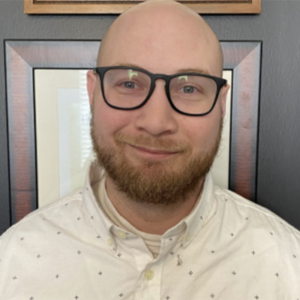 Kraig Kitts
Kraig Kitts
Kraig Kitts is a Ph.D. student in science education, an associate instructor at IU Bloomington, and an adjunct professor at Ivy Tech Community college. Kraig teaches elementary science methods courses, supervises undergraduate student learning experiences in the field, and teachers’ anatomy and physiology courses. Prior to coming to IU, Kraig spent time as a high school science teacher and chemical engineer. Kraig’s research focus is on understanding preservice elementary teacher attitudes toward inquiry and developing strategies to more effectively prepare undergraduates for teaching using inquiry in their classrooms.
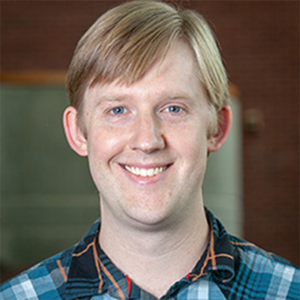 Neil Zehr
Neil Zehr
Neil earned his B.S. in the Digital Media Arts program at Huntington University in Huntington, IN. During his years there, he studied various traditional animation techniques, computer animation, and computer graphics while also working on several freelance projects and showcasing his films in Huntington’s annual media showcase. Following his graduation in the summer of 2008, he joined the IDIA at Ball State as a virtual worlds 3D modeler and animator.
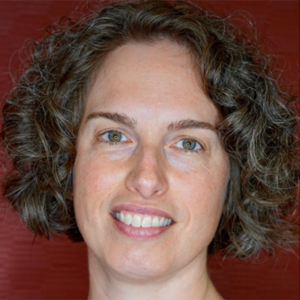 Patti Walsh
Patti Walsh
Patti Walsh is a Ph.D. student in Curriculum and Instruction – Mathematics Education, an associate instructor, and a research assistant at Indiana University Bloomington. She teaches mathematics content and methods courses and supervises both elementary and secondary undergraduate teacher candidates in the field. Patti’s research interests include teachers’ mental models of student thinking, in-service teacher professional development, and teachers’ classroom use of elicited student knowledge. Prior to coming to IU, Patti taught middle school math, science, and business courses as well as elementary school and preschool. She is a National Board Certified Teacher in Early Adolescent Mathematics. Before becoming a teacher, Patti was a computer programmer and business analyst in the finance sector.
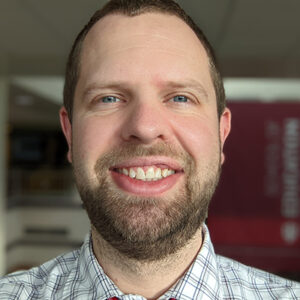 Spencer Perry
Spencer Perry
Spencer is a Ph.D. student in Science Education and an Associate Instructor of Science Education at Indiana University, Bloomington. Spencer teaches content and methods courses in science education to both elementary and secondary preservice science teachers. Prior to joining Indiana University, Spencer taught methods courses for preservice physics and chemistry teachers at Brigham Young University. Spencer’s research focus is on understanding reasons for high school physics teachers’ career attrition and developing strategies for mitigating attrition starting in preservice education. He serves as a member IU’s Graduate and Professional Student Government and as a Physics Teaching Resource Agent through the American Association of Physics Teachers.
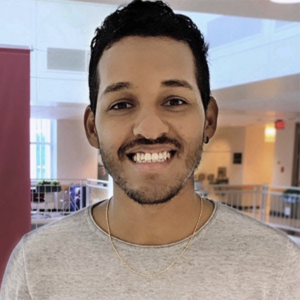 Weverton Pinherio
Weverton Pinherio
Weverton Ataide Pinheiro is a Ph.D. Candidate in Mathematics Education, an Associate Instructor of Mathematics Education at Indiana University Bloomington (IUB) and Indiana University Purdue University Indianapolis (IUPUI), and a research assistant. Weverton teaches content and methods mathematics courses to students majoring in Elementary Education. In addition, he/they also supervises the mathematics and science field experience courses at IUB. Before joining the Ph.D. program at IUB, Weverton taught K-16 mathematics in Brasília (Brazil), Phoenix (AZ), and Taipei (Taiwan). Weverton’s research focuses on Critical Mathematics Studies with emphasis on gender, sexuality, and mathematical identities. He/they seeks to answer how the intersection of Queer and mathematical identities impacts students’ experiences in the Teaching of Mathematics for Social Justice. He/they currently serves as Indiana Council of Teachers of Mathematics Communications Director, Administrator and Teacher for the Foundations in Sciences and Mathematics Summer Program at IUB, and volunteer at Indiana Youth Group.